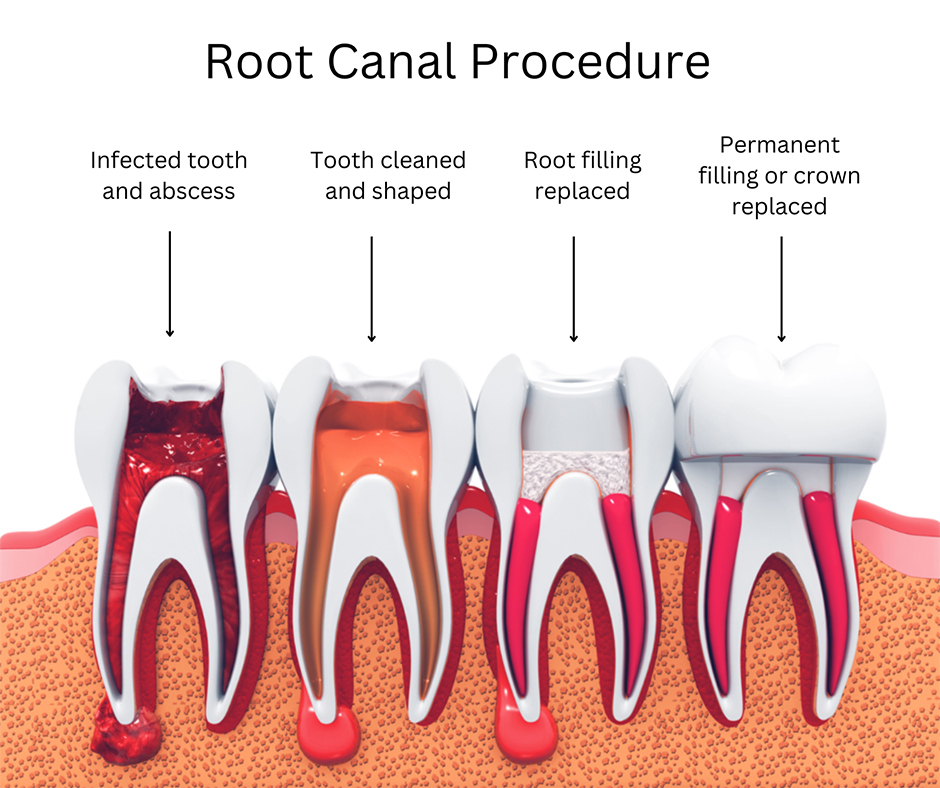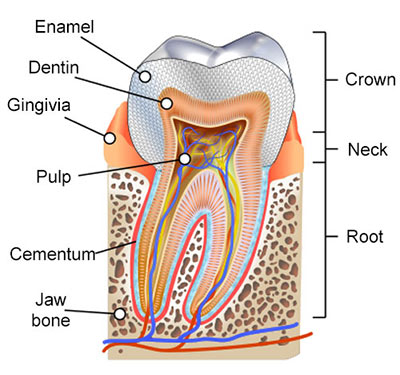
Root Canal Therapy
Our dentist offer root canal therapy in London. A root canal therapy is a procedure where your dentist removes diseased blood vessels, nerves, and tissues from the interior of a tooth. By removing the infected tissue and bacteria, your dentist can help halt the spread of infection and prevent the need for an extraction.
When Do You Need a Root Canal?
When the dental pulp in the middle of the tooth becomes damaged or infected, a root canal treatment is necessary. The tooth framework that surrounds the dental pulp normally shields it from harm, but occasionally damage to a tooth might leave the pulp exposed. An infection from bacteria in the mouth typically causes a severe toothache by entering the exposed pulp and causing pain.
Conditions that can damage your tooth’s pulp include the following:
- Severe decay
- Large fillings
- A crack in the tooth
- Tooth fracture from trauma
- Repeated procedures on your tooth
Root Canal Therapy Can Often Be Performed In One Or More Visits and Involves The Following Steps:
1. After examination and x-rays, the diagnosis and need for root canal treatment will be confirmed. Then the dentist administers local anesthetic. After the tooth is numb, a small protective sheet called a “dental dam” will be placed over the area to isolate the tooth and keep it clean and free of saliva during the procedure.
2. An opening will be made on top of the tooth to get access to the pulp. Very small instruments are used to clean the pulp from the pulp chamber and root canals and to shape the space for filling.
3. After the space is cleaned and shaped, the root canals will be filled with a biocompatible material, usually a rubber-like material called gutta-percha.
The gutta-percha is placed with adhesive cement to ensure complete sealing of the root canals. In most cases, a temporary filling is placed to close the opening during healing. The temporary filling will be removed when the tooth is restored.
4. After the completion of root canal treatment, a crown or other restoration need to be placed on the tooth to protect and restore it to full function
What Special Cares Needed After Root Canal Treatment?
- Avoid chewing or biting hard on the root canal-treated tooth until you have it properly restored.
- The unrestored tooth is susceptible to fracture.
- Most root canal-treated teeth last as long as other natural teeth.
However, there are cases that teeth have undergone root canal treatment do not heal or the pain continues. Some teeth may become painful or reinfected months or even years after successful treatment. Often when this occurs, root canal retreatment can possibly still save the tooth.
WHEN WAS YOUR LAST VISIT?
Book An Appointment For Root Canal Therapy In London At Carling Heights Dental Clinic
We’re open on Saturdays to make it easier for you to fit dental appointments into your schedule.






